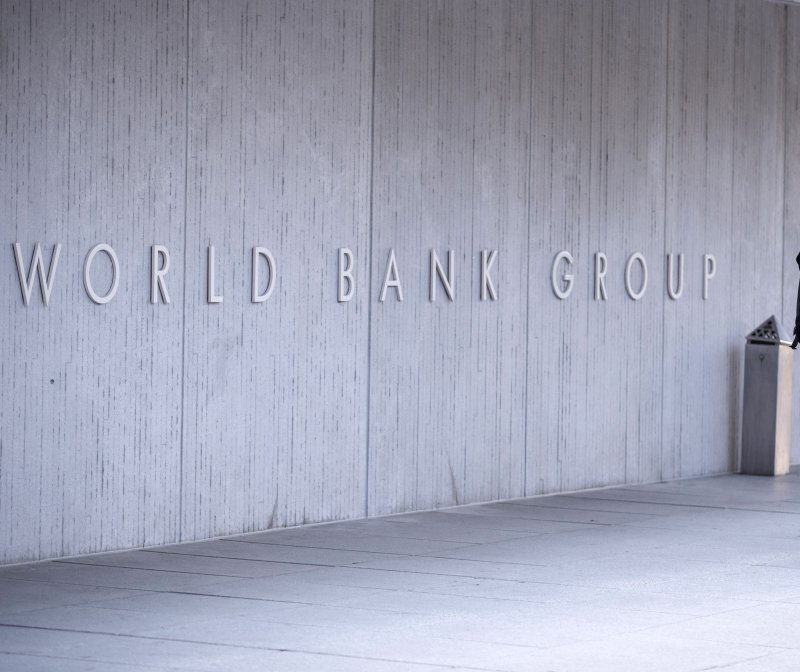A pedestrian walks in front of The World Bank Group building in Washington, D.C., on April 18, 2018. The World Bank warned of global stagflation in its latest report on Tuesday. File Photo by Shawn Thew/EPA-EFE
June 7 (UPI) -- The World Bank warned Tuesday of global stagflation that could occur in the face of Russia's invasion of Ukraine and the lingering effects of the COVID-19 pandemic.
World Bank officials noted their concerns in the latest Global Economic Prospects report. Stagflation occurs when economic growth slows along with faltering demand and rising unemployment.
The organization said global growth is projected to slow to 2.9% this year from 5.7% in 2021, a sharp decline from the previously anticipated growth of 4.1% predicted for the year in January.
"The war in Ukraine, lockdowns in China, supply-chain disruptions, and the risk of stagflation are hammering growth," World Bank president David Malpass said in a statement. "For many countries, the recession will be hard to avoid.
"Markets look forward, so it is urgent to encourage production and avoid trade restrictions. Changes in fiscal, monetary, climate and debt policy are needed to counter capital misallocation and inequality."
The report said growth was expected to hover around 2.9% over the next couple of years as Russia's war with Ukraine continues to disrupt the economy, "pent-up demand fades" and fiscal and monetary policies tighten.
The World Bank said the conditions are comparable with the stagflation of the 1970s with a particular emphasis on how it could hamper emerging markets and developing economies.
"Developing economies will have to balance the need to ensure fiscal sustainability with the need to mitigate the effects of today's overlapping crises on their poorest citizens," said Ayhan Kose, director of the World Bank's Prospects Group, in a statement.
"Communicating monetary policy decisions clearly, leveraging credible monetary policy frameworks, and protecting central bank independence can effectively anchor inflation expectations and reduce the amount of policy tightening required to achieve the desired effects on inflation and activity."















